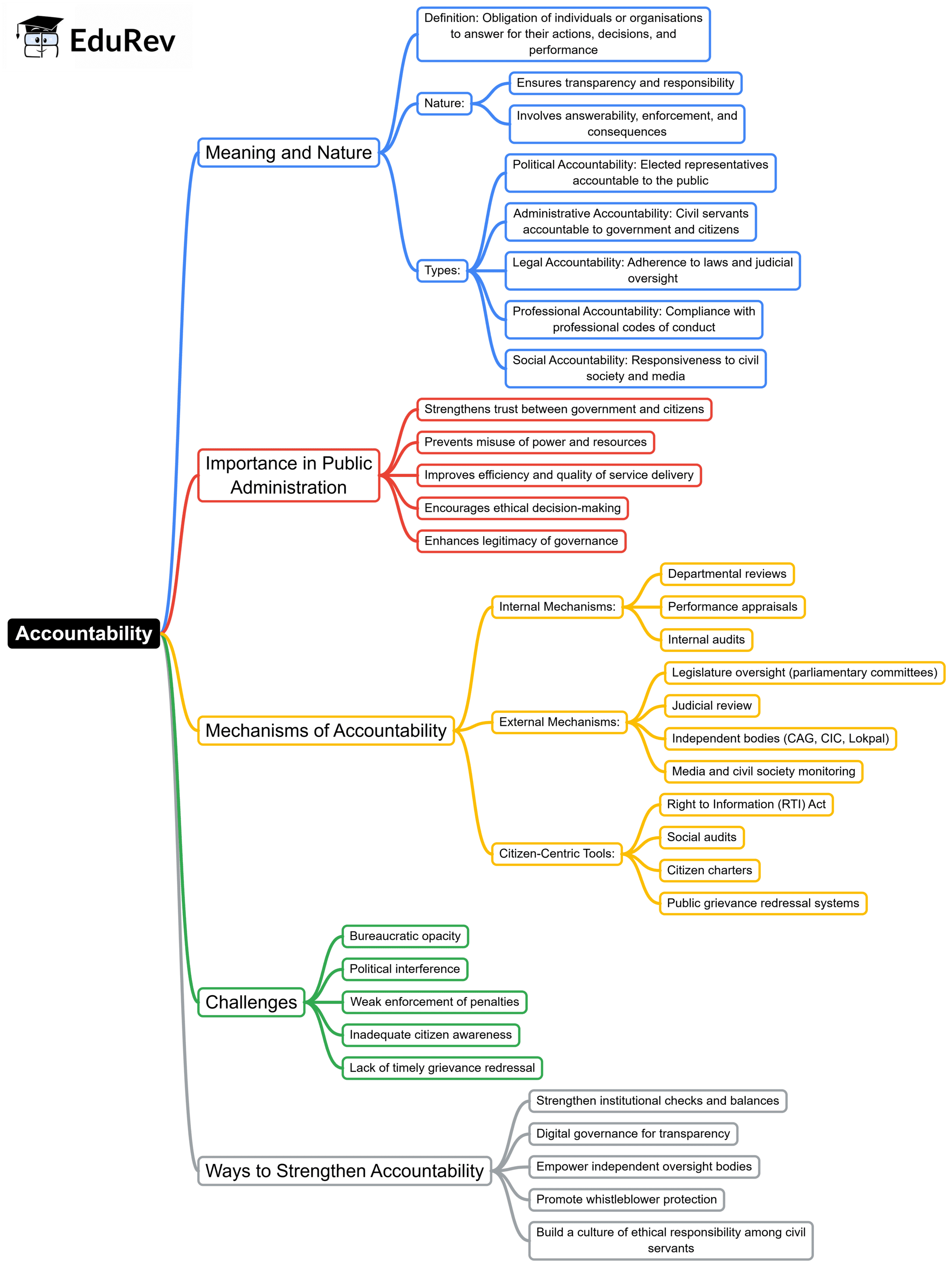UPSC Exam > UPSC Notes > UPSC Mains: Ethics, Integrity & Aptitude > Mind Map: Accountability
Mind Map: Accountability | UPSC Mains: Ethics, Integrity & Aptitude PDF Download

The document Mind Map: Accountability | UPSC Mains: Ethics, Integrity & Aptitude is a part of the UPSC Course UPSC Mains: Ethics, Integrity & Aptitude.
All you need of UPSC at this link: UPSC
|
78 videos|138 docs
|
FAQs on Mind Map: Accountability - UPSC Mains: Ethics, Integrity & Aptitude
| 1. What is accountability in the context of governance and public administration? |  |
Ans. Accountability in governance refers to the obligation of public officials to report, explain, and be answerable for the consequences of their actions. It ensures that government actions are transparent, and that officials are held responsible for their decisions, thereby promoting trust and integrity in public administration.
| 2. Why is accountability important for UPSC aspirants? |  |
Ans. For UPSC aspirants, understanding accountability is crucial as it forms a core principle of public administration and governance. It helps candidates grasp the ethical responsibilities of civil servants, the importance of transparency in decision-making, and the mechanisms through which accountability is enforced in government, which are essential for effective governance.
| 3. What are some mechanisms of accountability in the public sector? |  |
Ans. Mechanisms of accountability in the public sector include oversight by legislative bodies, judicial review, internal and external audits, performance evaluations, citizen feedback systems, and ethical standards for public officials. These tools help ensure that government actions align with legal standards and public expectations.
| 4. How does accountability relate to the principles of good governance? |  |
Ans. Accountability is one of the key principles of good governance, which also includes transparency, participation, responsiveness, and rule of law. Good governance aims to create a system where government actions are subject to scrutiny, ensuring that officials act in the best interests of the public and maintain a high standard of service.
| 5. What role do citizens play in holding public officials accountable? |  |
Ans. Citizens play a vital role in holding public officials accountable by exercising their rights to information, participating in public consultations, voting, and engaging in civic activism. They can also utilize legal avenues to challenge government decisions, thereby fostering a culture of accountability and responsiveness within the public sector.
Related Searches
















